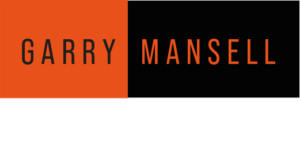Late last year, I did a piece of consulting for a software start-up that was starting to scale and whose sales team was struggling to close deals. Early indicators are that my advice is bringing success, so I am sharing it.
I spent a good chunk of my career buying software and a fair bit of it selling it. And you know what? I much preferred selling it.
There was a big reason for this preference, and it all came down to the sheer number of bad salespeople I came across when I was buying (and it wasn’t just in software). The most common problem? They didn’t listen. They didn’t care about my needs as a buyer.
So, if you’re selling anything to anyone, give yourself a leg up: learn to listen more than you talk.
I can see you nodding your heads as you read this. I can practically hear you thinking, “But I do listen!” Well, let’s put that to the test. As a salesperson, when you get the chance to pitch to a prospect, do you find yourself doing any of these things:
Cracking out the same old PowerPoint presentation about your company and what you sell right off the bat?
Gushing about the features of your product or service with such enthusiasm that your love affair is clear for all to see?
Running out of time to make all the points you wanted to make, or even worse…
Noticing some of your audience checking their phones, tablets, or laptops during your presentation?
Some of these are signs that you haven’t grabbed your audience’s full attention, and others are warning signs that you might not answer their real questions.
Let’s address one point on that list that you might think is harmless: your enthusiasm for your product or service. I’ve stopped countless salespeople in their tracks when they start waxing lyrical about their offerings and peppering their speech with phrases like “and it can also” or “what it does is…” Look, I get it; you’re passionate about what you sell. But enthusiasm without understanding your audience’s needs comes across as self-serving and not helpful.
Here’s the key takeaway: The best salespeople aren’t the ones who talk the most; they’re the ones who listen the most. They listen to understand their prospect’s needs, challenges, and goals. Then, and only then, do they craft a solution that addresses those specific needs.
So, the next time you prepare for a sales pitch, remember it’s not about you but your prospect. Ask good questions, listen intently, and tailor your approach accordingly. By doing so, you’ll be well on your way to sales success.


